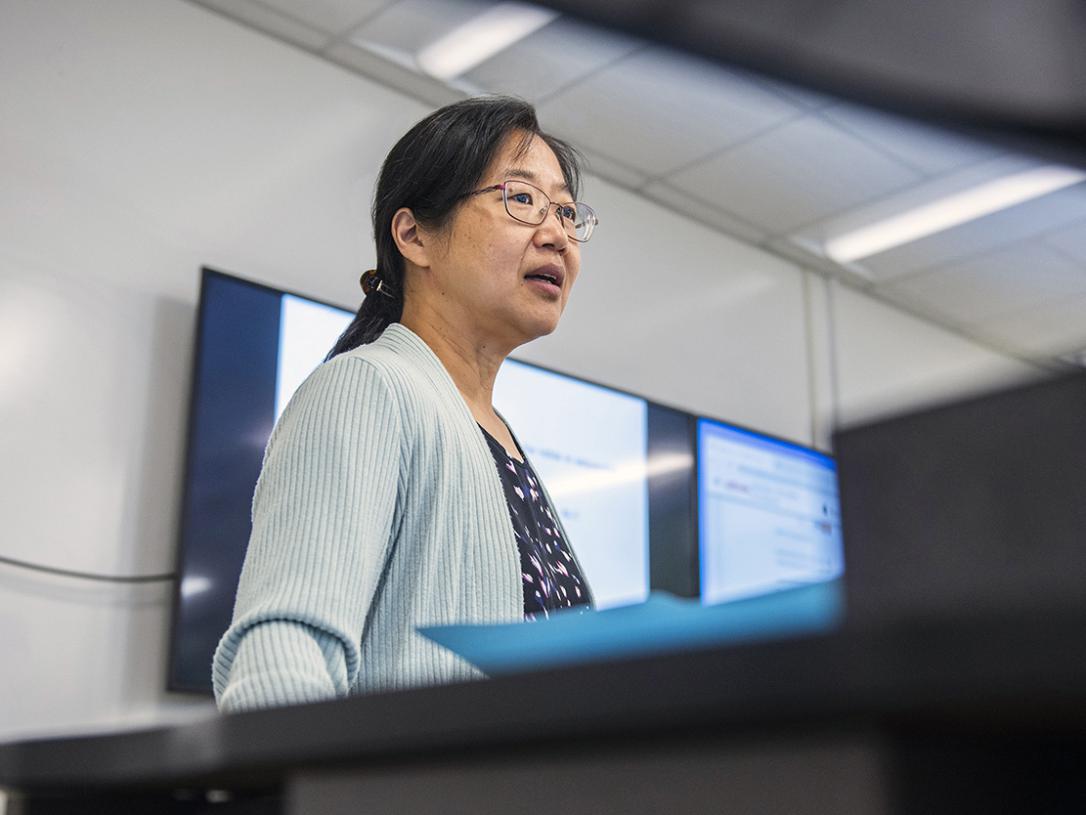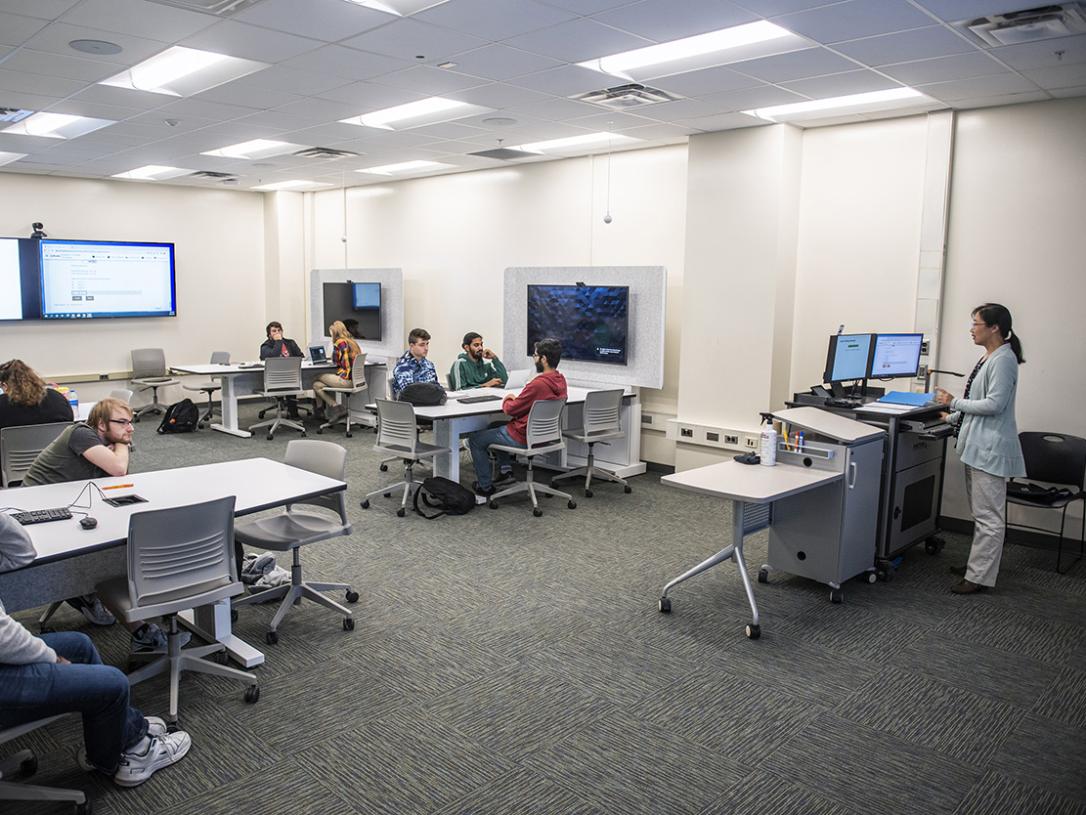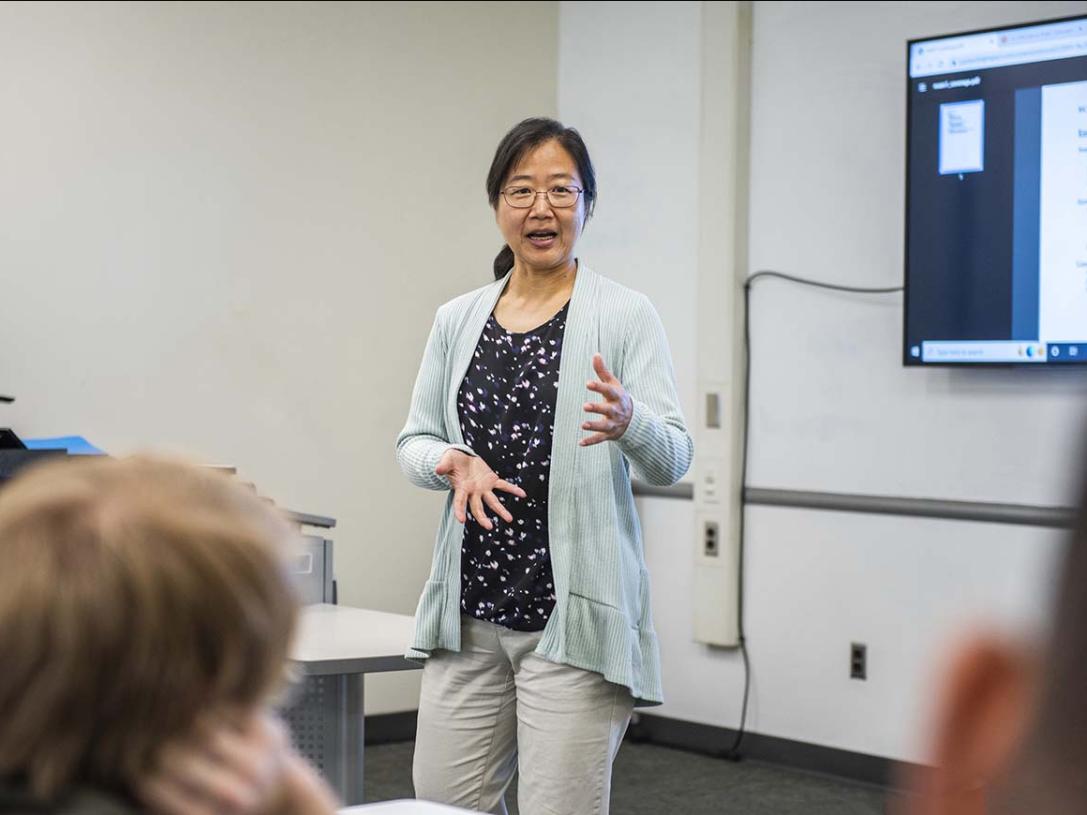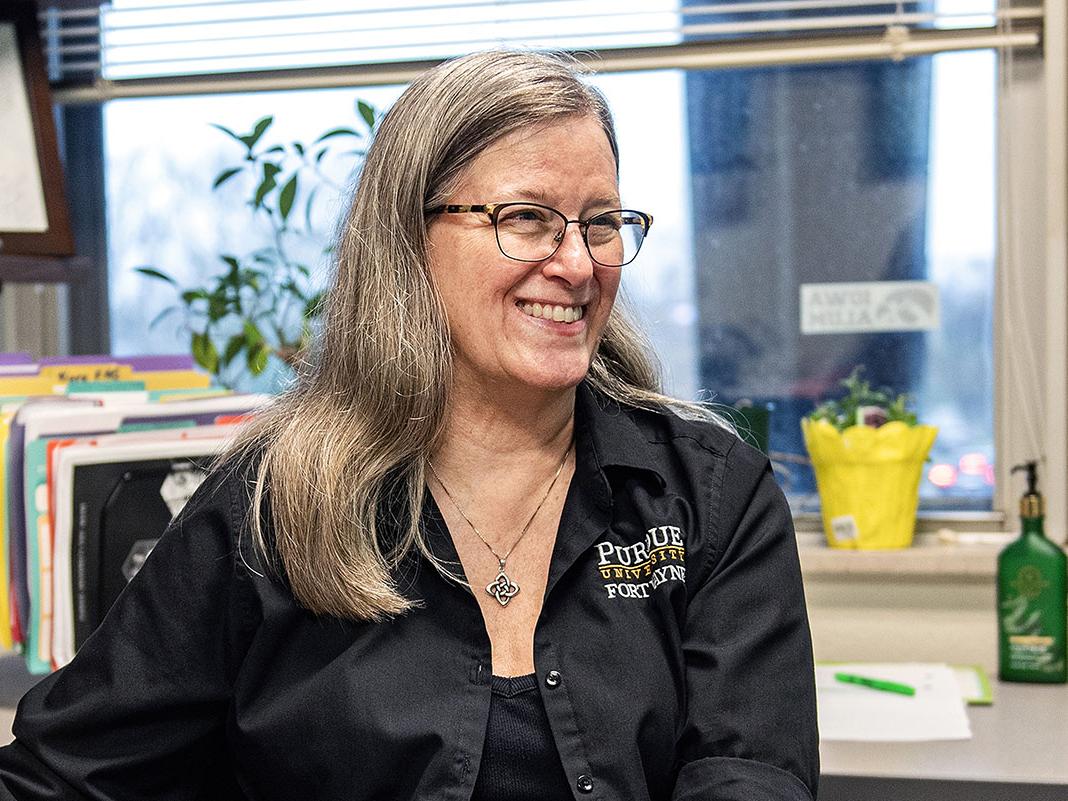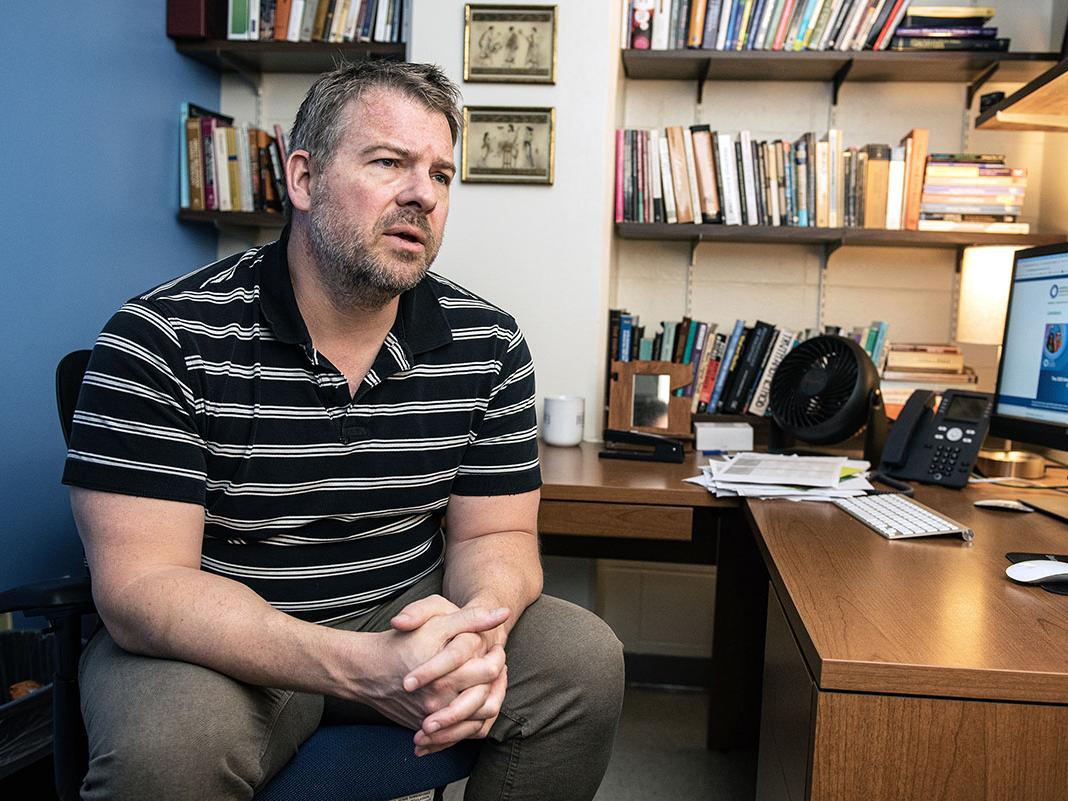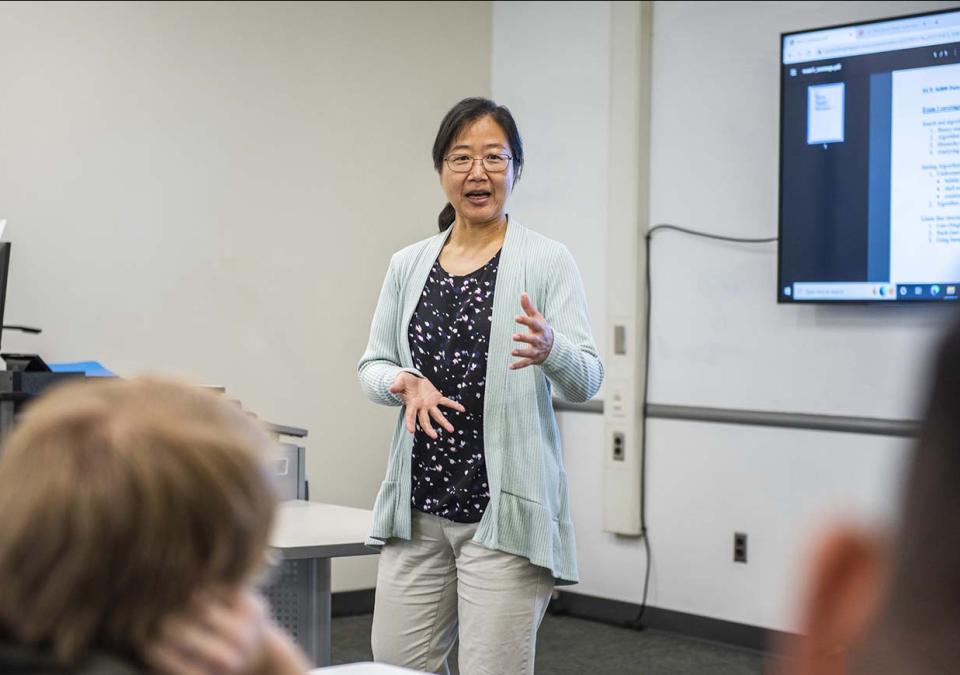
Dedicated People, Positive Progress
Chen has followed long path to helping PFW students
Chao Chen, associate professor of electrical and computer engineering
Things students usually mention during evaluations about Chao Chen focus on her enthusiasm, empathy, concern for individuals, a commitment to help them succeed, the way she simplifies concepts so they are easy to understand, and the continual extra efforts she provides.
In other words, she’ll do whatever she has to so that her students prosper in her class.
That includes putting in as much time researching as they do with the coursework. An associate professor of electrical and computer engineering in the College of Engineering, Technology, and Computer Science at Purdue University Fort Wayne, Chen scours the internet to understand new concepts she can use during her classes. It’s her passion to keep lectures interesting and relevant, presenting new ideas to enlighten her students.
“I’ve been teaching these courses since I came here, but I try to add new things, new technologies, and new projects here and there to try to keep them up-to-date with what’s being practiced in the field,” Chen said. “I like to get some new courses and get some new concepts so I’m not repeating all the time. I try to get them motivated and keep my interest, otherwise, it’s just the same thing.”
Her interest is not necessarily in revamping her courses or introducing dramatic changes, but in finding new tweaks.
“From my perspective, Chao cares about her teaching and students very much,” said her husband Zesheng Chen, an associate professor of computer science at PFW. “Our daily talks usually include how to make teaching more efficient or how to help students who need more care. She is a great teacher!”
They’ve had an interesting life together; both were born in China and started their relationship there. Chao came to the United States to study at Georgia Tech in 2001. She had studied English starting in middle school thanks to Yale graduates who were on semester-long contracts.
Essentially traveling to another world, she was limited to bringing two suitcases and $2,000. She was able to sublet an off-campus apartment from a fellow student who was interning in another city. Working as a lab research assistant, she waited two years to buy a car.
Zesheng also came to America in 2001, attending the University of Massachusetts before transferring to Georgia Tech. They married in 2003, but there was more time apart coming. After she graduated in 2005, Chao came to PFW, but Zesheng still had two years remaining in Atlanta. When he graduated in 2007, they were unable to find positions in the same geographic area, so he began teaching at Florida International University, located in Miami.
“The first four years, we were flying back and forth every month,” Chao Chen said.
They finally had a permanent reunion in 2009 when Zesheng moved to Fort Wayne and began teaching as a limited-term lecturer. He also worked as a software engineer at TransWorks from 2012 to 2015 before receiving a full position in the Department of Computer Science in 2015.
Their daughter was born at the end of 2009, followed by a son in 2011. So, Chao Chen understands the challenges students face and the need to keep adapting.
And now Fort Wayne and PFW are home for the Chen family. She mentions her colleagues and the family’s membership in a supportive local Chinese church as key factors that have helped them settle in. She always tries to provide similar stability and support for her students, especially coming off the recent pandemic.
“Think from the students’ perspective, and they maybe have experienced more than us,” Chen said. “Those two years … college is short, and that is a big chunk of their time. At least for me, that is not a big issue because we have family, support systems, and other things to work with and provide balance. But for them, that’s the only life they are getting, so if that is a shutdown, it’s troubling.
“You have to adapt the material as well. You can fill the gap and adjust the materials to help them get to where they need to be. You have to give them the chance to fail, but don’t discourage them, let them set more little milestones than the big thing. Let them build up.”
